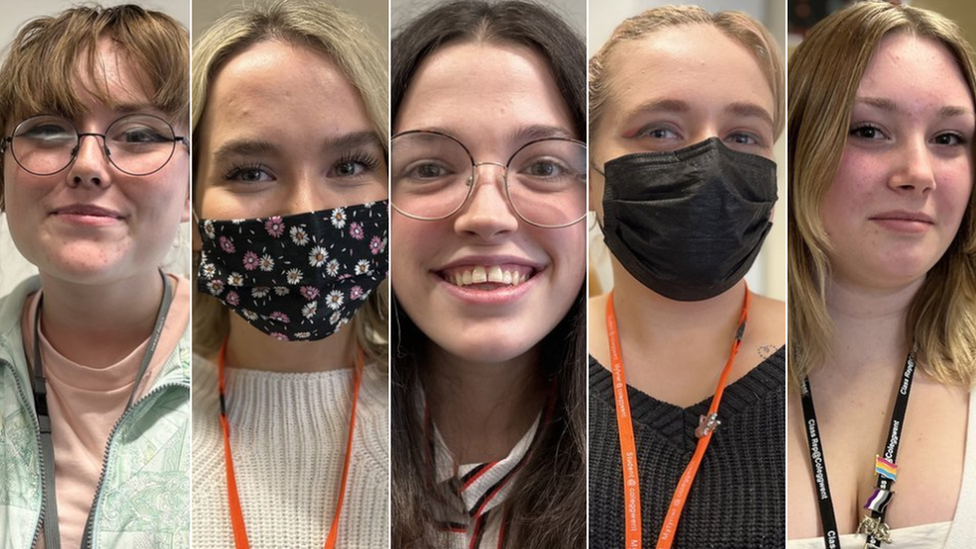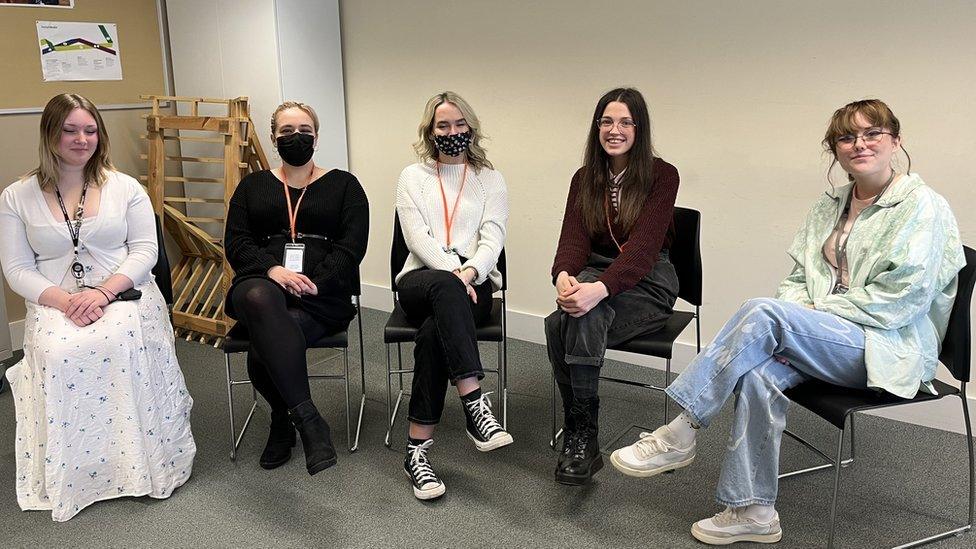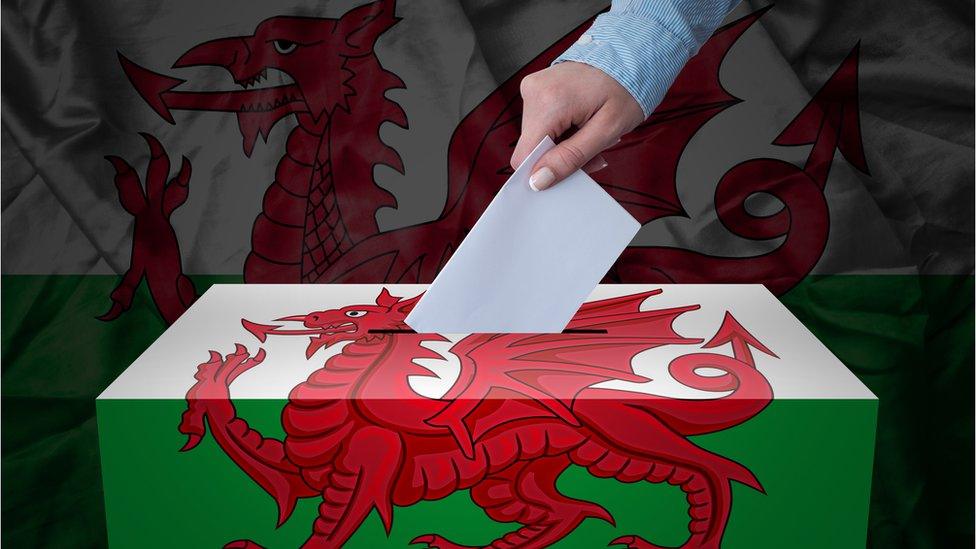Welsh elections: Campus polling stations for young voters
- Published

Coleg Gwent students will be able to vote on site up to a week before polling day
Some schools are to become early polling stations in an effort to get more young people voting in May's council elections.
It comes a day after a new report called for urgent action to engage young people in politics.
Votes for 16 and 17-year-olds in local and Senedd elections were introduced ahead of the 2021 Senedd election.
One polling station at Coleg Gwent's Ebbw Vale campus will allow residents to vote a week before polling day.
It will run alongside early voting stations at a school in Bridgend, and at council offices in Caerphilly and Torfaen.
In the May 2021 Senedd election, figures showed 50% of 16 and 17-year-olds registered to vote, while official estimates said that 60% of those ended up voting.
But the Conservatives said the Labour-backed measures "stink".
Middle of exam season
The Votes at 16 report was conducted by researchers on behalf of the Joseph Rowntree Reform Trust and collected experiences of young people across Wales.
It said Covid interrupted party efforts to connect with young people, but they were also put off by voting in the middle of exam season.
At Coleg Gwent's campus in the Blaenau Gwent Learning Zone, students welcomed the announcement.

Two of these five Coleg Gwent students voted in the latest Senedd election
BBC Wales spoke to five students - two of whom voted in the Senedd election.
Among those who did not vote, a lack of knowledge came up as a barrier to casting a ballot.
Angharad, 17, welcomed the idea of a more accessible polling station, especially for people who were disabled.
However, she thought that in the Senedd elections the manifestos were filled with "confusing jargon" while none of the candidates stood for her beliefs.
'I don't feel represented'
Cheyanne, 22, said going into May's elections she had a "lack of knowledge and understanding".
She said she juggled trying to raise a one-year-old son with the "hassle" of trying to register twice for a postal vote, and that "you just sit down and realise it's easier to stay at home".
She said she was excited about the prospect of flexible voting because it was easier to fit around childcare.
For Caitlyn, 21, the lack of representation in politics was off-putting.
"I don't feel represented across the board, as a woman, as somebody LGBTQ, as somebody from a lower economic background, and as a young person" she said.
'Don't know what they're voting for'
Megan, 18, said the polling station was a "brilliant idea" but only if students were educated about why they should vote.
"A lot of people don't know any of the political parties, they don't know what they're voting for," she said.
Seren, 22, agreed, adding: "I think they missed a few steps with it."
She said the Welsh government has focused on access to voting but not "educating young people on what's going on".
Dr Andy Mycock, who contributed to the report, said data suggested turnout of 16 to 17-year-olds was up to 10% below the national average.
He said there was not enough time between the announcement of the policy and the election.
'Doing it better'
He urged the Welsh government to consider election timing "so that we don't concertina elections into a very short period of time and then wonder why young people struggle to participate and engage in elections."
Minister for the Constitution Mick Antoniw MS said getting more people voting earlier was a priority.
He said the trial was the beginning of "doing something differently and doing it better".
"Why shouldn't people be able to vote in their college or their workplace or their supermarket?" he said.
"We've started the process, people can now vote at 16, the education system has to adapt to live up to their expectations."
The Welsh Conservatives' constitution spokesman Darran Millar said: "These arrangements stink. They are unnecessary and appear to be an attempt to game elections in favour of the Labour Party.
"People in Wales already have ample opportunity to vote with 15 hours to vote on polling day in addition to postal and proxy voting that already enables people to vote flexibly and in advance."
A Welsh Government spokesman said: "Every one of Wales' 22 local authorities were invited to take forward pilots like these, with a commitment from Welsh government to provide support. Four councils came forward and those are the proposals we are supporting.
"The lessons from these pilots could be applied across all of Wales, and could affect how people vote in all corners of our nation."

TEENAGE KICKS: New series of BAFTA award-winning In My Skin
BACK TO THE VALLEYS: Beena is young, spirited and fancy free, well she was until Mam got involved...

Related topics
- Published5 May 2021

- Published30 April 2021

- Published16 April 2021
